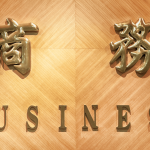Hong Kong Budget 2018-2019
On 28 February 2018, the Financial Secretary of Hong Kong announced the Budget for the fiscal year 2018-19. It is estimated in the Budget that there will be a surplus of HKD 138 billion in the fiscal year 2017-18, which is HKD 121.7 billion more than the original estimation of HKD 16.3 billion made in the 2017-18 Budget. The significant increment in the surplus is mainly due to much higher revenue derived from land premium and stamp duties. It is expected that the fiscal reserves will reach HKD 1,092 billion by 31 March 2018.
The Hong Kong economy grew by 3.8% last year, which is higher than the average trend growth rate of 2.9% over the decade from 2007 to 2016. Looking ahead, the Financial Secretary is cautiously optimistic of the future economy, amid the recovery of the economies of the US, Eurozone and Japan further with a synchronised acceleration of growth as well as the sustaining strong economic growth momentum of Mainland China. It is forecasted that Hong Kong will have economic growth of 3% to 4% this year.
Key Support & Relief Measures
With a view to offer supports and alleviate the financial burdens of enterprises and individuals, the Financial Secretary proposes a number of support and relief measures in the 2018-19 Budget. The major measures relevant for enterprises as well as middle-class and upper-class individuals which are subject to enactment of legislation before effective. include the following:
- Enterprises
-
- Reduction of profits tax for the year of assessment 2017-18 by 75%, subject to a ceiling of HKD 30,000 per case.
- Provision of financial supports by means of:
- setting aside HKD 60 billion (an additional of HKD 50 billion when compared to last year) for supporting information technology development. Out of HKD 60 billion, HKD 10 billion will be injected into the Innovation and Technology Fund;
- offering financial assistance up to HKD 200,000 for each eligible start-up to conduct market research and promotion, as well as participate in business missions, trade fairs and exhibitions outside of Hong Kong;
- extending the application period for the special concessionary measures under the SME Financing Guarantee Scheme to 28 February 2019;
- injecting HKD 1.5 billion into the Dedicated Fund on Branding, Upgrading and Domestic Sales;
- injecting HKD 1 billion into the SME Export Marketing and Development Funds; and
- providing a total of HKD 250 million additional funding to the Hong Kong Trade Development Council in the five financial years from 2018-19 for assisting local enterprises (in particular SMEs) in seizing opportunities arising from the Belt and Road Initiative and the Bay Area development, promoting the development of e-commerce, and enhancing Hong Kong’s role as a premier international convention, exhibition and sourcing centre.
- Individuals
- Reduction of salaries tax and tax under personal assessment for the year of assessment 2017-18 by 75%, subject to a ceiling of HKD 30,000 per case.
- (Widening the tax bands for salaries tax from HKD 45,000 to HKD 50,000; increasing the number of tax bands from 4 to 5; and adjusting the marginal tax rates from 2%, 7%, 12% and 17% to 2%, 6%, 10%, 14% and 17% with effect from the year of assessment 2018-19.
3. Increment of the following tax allowances with effect from the year of assessment 2018-19
4. Introduction of a personal disability allowance for eligible taxpayers namely disabled dependent allowance of HKD 75,000, with effect from the year of assessment 2018-19.
5. Raising the maximum deduction for elderly residential care expenses from HKD 92,000 to HKD 100,000 for taxpayers whose parents or grandparents are admitted to residential care homes, with effect from the year of assessment 2018-19.
6. Allowing husband and wife to decide separately, instead of jointly as required currently, whether to elect for personal assessment starting from the year of assessment 2018-19, which will entail amendments to the Inland Revenue Ordinance.
6. Waiver of the government rates charged on property owners for a period of four quarters during the fiscal year 2018-19, subject to a ceiling of HKD 2,500 per quarter for each rateable property.
- Enterprises and/or individuals
-
- Continuing the waiver in full of first registration tax for electric commercial vehicles, electric motor cycles and electric motor tricycles until 31 March 2021.
- Continuing the current concession of first registration tax for electric private cars up to HKD 97,500, and launching a “one-for-one replacement” scheme from 28 February 2018 which allows eligible private car owners who buy a new electric private car and scrap an eligible private car they own to enjoy a first registration tax concession of up to HKD 250,000. This concession will remain in force until 31 March 2021.
Other Major Tax Related Issues
(A) Implementation of two-tiered profits tax rates system
As stated in the 2018-19 Budget, the two-tiered profits tax rates regime (i.e. the first HKD 2 million assessable profits being taxed at a reduced tax rate of 8.25% while the remaining assessable profits being taxed at a standard rate of 16.5%) as previously proposed by the Chief Executive of Hong Kong will be implemented.
(B) Entering into more Comprehensive Avoidance of Double Taxation Agreements (“CDTAs”)
Hong Kong has concluded CDTAs with 38 tax jurisdictions so far. It will actively seek to sign CDTAs with more jurisdictions, including those along the Belt and Road, with a view to benefit taxpayers, attract more enterprises to use Hong Kong as their base for investments, and strengthen Hong Kong’s position as an international trade and investment hub.
(C) Granting profits tax concession for corporate treasury business
Hong Kong government will further amend the Inland Revenue Ordinance to extend the coverage of profits tax concession in respect of specified treasury services provided by qualifying corporate treasury centres to all their onshore associated corporations, so as to attract multinational and Mainland enterprises to establish corporate treasury centres in Hong Kong.
(D) Introduction of tax incentives for fund industry
Hong Kong has introduced a number of initiatives to enhance its competitiveness for fund industry. It is expected that the regime for open-ended fund companies to be used as a fund vehicle and the relevant tax exemption arrangements will commence operation later this year. Moreover, the government will review the existing tax concession arrangements applicable to the fund industry with regard to international requirements on tax co-operation. It will also examine the feasibility of introducing a limited partnership regime for private equity funds and the related tax arrangements.
(E) Extension of the scope of qualifying debt instruments for tax concession
The Financial Secretary proposes to amend the qualifying debt instrument scheme by extending the scope of qualifying debt instruments. Apart from instruments lodged and cleared by the Central Money markets Unit of the Hong Kong Monetary Authority, debt securities listed on the Stock Exchange of Hong Kong will also be qualified for tax concession. It is also suggested to extend the scope of tax exemption from debt instruments with an original maturity of not less than seven years to instruments of any duration. Pursuant to the enhanced scheme, more diverse ranges of debt instruments, from which interest income and trading profits are derived, can be qualified for tax concession.
(F) Introduction of super tax deduction of expenditure on research and development (“R&D”)
In order to encourage R&D, the Chief Executive of Hong Kong has previously proposed to provide additional tax deduction for domestic expenditure on R&D incurred by enterprises (i.e. 300% tax deduction for the first HKD 2 million qualifying R&D expenditure and 200% tax deduction for the remainder). The relevant consultation and paper drafting for legislation have already commenced.
(G) Offering one-off 100% tax deduction for acquiring eligible energy efficient building installations and renewable energy devices
It is also proposed to allow enterprises to claim 100% tax deduction on their capital expenditure incurred in procuring eligible energy efficient building installations and renewable energy devices in the year of acquisition, instead of spreading the tax deduction over five consecutive years.
(H) Introduction of tax deduction on eligible health insurance premium
In order to encourage individuals to participate in the Voluntary Health Insurance Scheme, the government suggests to offer a tax deduction, capped at HKD 8,000 per insured person per year, for individual taxpayers who purchase eligible health insurance products for themselves or their dependents.
(I) Offering tax concessions for deferred annuity products and voluntary contributions made to the Mandatory Provident Fund Scheme
With a view to encourage long-term saving for retirement purpose, it is proposed to provide tax concessions for deferred annuity products and voluntary contributions made to the Mandatory Provident Fund Scheme.
Please be aware that more Budget related measures may be announced soon as some people within the society of Hong Kong (especially permanent residents aged 18 and above who pay no tax and have no property) might have missed out on the recent relief measurements.






